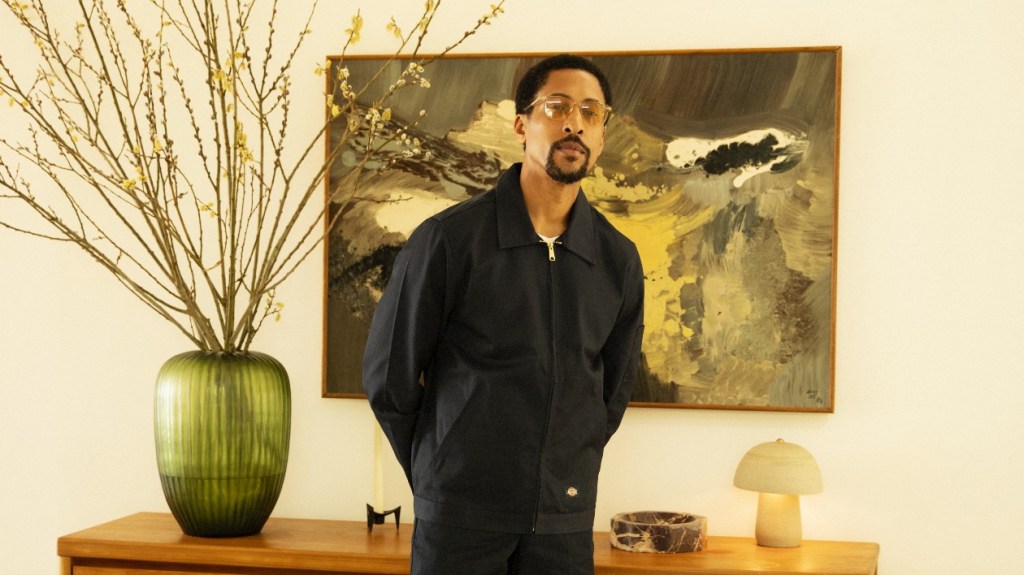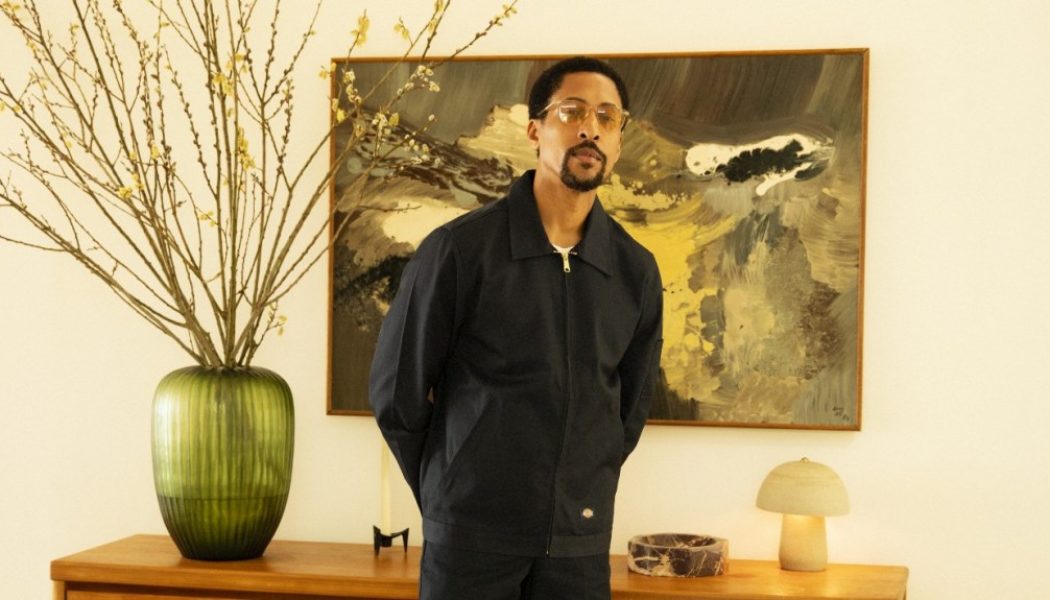
Of his previous trips to Africa, Larry Jackson says simply, “[They have been] tattooed on my heart.” Now, with his latest venture, he’s looking to put his own stamp on the continent.
Gamma, Jackson’s recently launched media company, announced in May that it was expanding operations into Africa and the Middle East with Sipho Dlamini and Naomi Campbell onboard as president and special advisor for Africa and the Middle East, respectively. And this month, the company named Larry Gaaga vp/GM for Africa and Dany Neville as vp of A&R for the Middle East. One of Gaaga’s primary focuses will be spearheading initiatives to develop local talent, and he’s already begun discussions with Dlamini and Campbell on how they’ll discover and develop more African female artists. In his role, Neville will be identifying and nurturing Middle Eastern talent.
The move into both regions comes at an opportune time. According to the 2023 IFPI Global Music Report, Sub-Saharan Africa became the fastest-growing region in the world last year, with a 34.7% increase in revenue largely driven by South Africa’s booming market, where sales were up by 31.4%. Meanwhile, the Middle East and North Africa (MENA), 2021’s fastest-growing region, experienced a 23.8% increase in revenue driven almost entirely by streaming, which has a 95.5% share of the region’s recorded music market — the highest of any in the world.
Gamma is joining a long list of Western music companies to have set up shop in both territories over the last few years. UMG Nigeria and Sony Music Entertainment West Africa have both established offices in Lagos, Nigeria. In 2020, EMPIRE signed a distribution and publishing deal with Olamide’s independent label YBNL Nation, leading to the launch of EMPIRE Africa in Lagos two years later. Elsewhere on the continent, Warner Music Africa is based out of Johannesburg, South Africa, where Universal Music Africa also established one of two regional headquarters (the other is in Abidjan, Côte d’Ivoire). UMG has also been making inroads in the MENA region, from Republic Records partnering with Wassim “Sal” Slaiby to launch Universal Arabic Music to becoming the first major music company to open operations in Casablanca, Morocco. Universal Music MENA and Sony Music Middle East have headquarters in Dubai, United Arab Emirates, while Warner Music Middle East is based out of Beirut.
Gamma will have staff in Johannesburg, Lagos and Dubai, with plans for a physical office in Lagos. Dlamini will be based in Lagos and Dubai while frequently traveling to South Africa, Saudi Arabia and other countries in the markets; Campbell will also be frequently present in both regions, says a company spokesperson. On the African continent, Gaaga will help guide teams in Johannesburg and Lagos (where he’ll be based). And in the Middle East, Neville will be stationed in Dubai, where he’s established himself as one of the UAE’s groundbreaking on-air radio personalities/DJs.
The company has already gained a foothold in Africa thanks to its acquisition of music distribution service Vydia in December. Vydia’s founder/gamma chief technology and product officer Roy LaManna says that since Vydia launched on the continent in 2017, it’s become the company’s second-largest territory in the world thanks to partnerships with local record labels like Mr. Eazi’s emPawa Africa and Don Jazzy’s Mavin Records — which gamma is now using to further expand there. In April, gamma exclusively distributed and marketed a re-release of Mavin artist Rema’s Rave & Roses debut album in African territories, marking the company’s first regional move. The album includes Rema’s latest smash “Calm Down” with Selena Gomez, which has amassed 7.52 billion total on-demand streams globally, including user-generated content (UGC does not count toward Billboard’s charts). Vydia says the single has garnered 482 million streams across the African continent, while Rave & Roses has amassed more than 580 million streams across all tracks.
By owning Vydia, gamma will be able to support African artists in building careers in their home countries and beyond by offering technology and data that “can identify where tracks and artists are performing and then support and elevate them into a better space,” says Dlamini, while also offering staff on the ground where they are.
Dlamini has an impressive track record. For 24 years, he has been a music industry leader in Africa, including the seven years he spent at UMG, first as MD and then as CEO, along with a four-year stint at the Southern African Music Rights Organization (SAMRO), where he was eventually promoted to CEO. Prior, Dlamini was vp of operations at CSM Sport & Entertainment in Dubai, where he oversaw the largest concerts and music festivals in the region. In his previous role as MD of Universal Music South Africa and Sub-Saharan Africa, he launched Def Jam Africa — where he hired Gaaga as vp of A&R last year — with headquarters in Lagos and Johannesburg.
Jackson says he “had always admired” Dlamini’s hustle as CEO of Universal Music South Africa and Sub-Saharan Africa. “[He] built them into the No. 1 market share of any company in music in Africa,” he says. When the two eventually met through a mutual friend, music industry veteran Marc Byers, he continues, “I knew that I wanted to work together.”
While Campbell may not be known for her music industry experience — which has been limited to music video cameos and one studio album — she has long been a champion of developing opportunities in both Africa and the Middle East. She’s founded several charitable organizations benefiting emerging markets, including Fashion for Relief, which helps develop fashion, technology, business, entertainment and arts industries around the world, as well as the Emerge Initiative, which supports the next generation of creatives and entrepreneurs through apprenticeships, after-school programs and more.
“Naomi is truly one of the most powerful and impressive dignitaries in the world,” says Jackson. “She’s really rising to the challenge of being an executive and really has foresight, energy, ambition, ideas, influence – all of it.” Before gamma, Campbell helped him sort out “some work visa issues” when he traveled to South Africa with Drake in 2016 (during his stint as global creative director at Apple Music) by tapping her contacts within the country’s government as well as with Nelson Mandela’s family. Since then, she has introduced him to some of the most notable figures in Africa and the Middle East, from Afrobeats superstars Wizkid and Burna Boy to the Saudi Arabian minister of culture, Prince Badr bin Abdullah bin Mohammed bin Farhan Al Saud.
“I’m proud that a brother, a man of color and culture, is taking the reins and starting his own company,” says Campbell. “When he offered me this gig, I said yes because it’s a challenge for me. Yes, it’s not my day job, but at the end of the day, it’s about if you care. And I care, as everyone knows, about the continent and all the emerging markets.” Campbell also signed a podcast deal with gamma, according to Jackson, with the show expected to launch later this year.
For all of their promise, the African and Middle Eastern music markets come with significant hurdles. Chief among them is the issue of low streaming service subscribers in Africa, which Jackson is currently focused on finding solutions for.
“Streaming services in one of the biggest [African] territories, if not the biggest territory, Nigeria, have very low subscriber growth and very low subscribers in general,” says Jackson, adding that he’s already been speaking with his former Apple colleague Oliver Schusser about solving what he calls the biggest issue limiting that growth: payment.
While “the value of music and people’s willingness to pay for music” on the continent “is a lot less than in other territories,” Jackson admits, part of the payment issue stems from the fact that more people in Africa are likely to own a mobile phone than a bank account — which is why streaming services have been relying on telecommunications deals to significantly grow their subscriber bases. Through partnerships with local wireless providers in key markets — Vodacam in Tanzania, Airtel in Nigeria and MTN in Nigeria, Ghana and South Africa — Africa-focused streaming service Mdundo can bypass the issue of low penetration of payment cards in Africa and reach 185 million wireless subscribers, according to the company’s June 2023 guidance report. Other streamers have developed alternative payment methods, such as M-Pesa, which transforms a user’s SIM card and phone into a virtual banking system. Spotify allowed users in Kenya to pay using M-Pesa when the company began operating in the country two years ago.
While Jackson certainly sees the value in streamers making telco deals in Africa, he believes more can be done to convert music fans into streaming subscribers by, for example, making exclusive deals with artists — a strategy he successfully implemented during his previous gig. “Nothing has more relevance than Drake’s album being exclusive on Apple,” he says. “You can debate that all day, [but] there’s no carrier deal that’s going to bring you that level of audience. Bringing the artists and the culture and the community together with the streaming services I think is a missing part that hasn’t been done.”









